What Is the Connection Between Body Mind and Soul? A Hindu Yogi Perspective
The connection between the body, mind, and soul is a concept that has been explored and understood in various ways throughout different cultures, religions, and philosophical traditions. In this blog, I had noted a few ideas on each of them what we think in India, and the Indian perspective on their connection.
Table of Contents
A Brief Idea of Body Mind and Soul
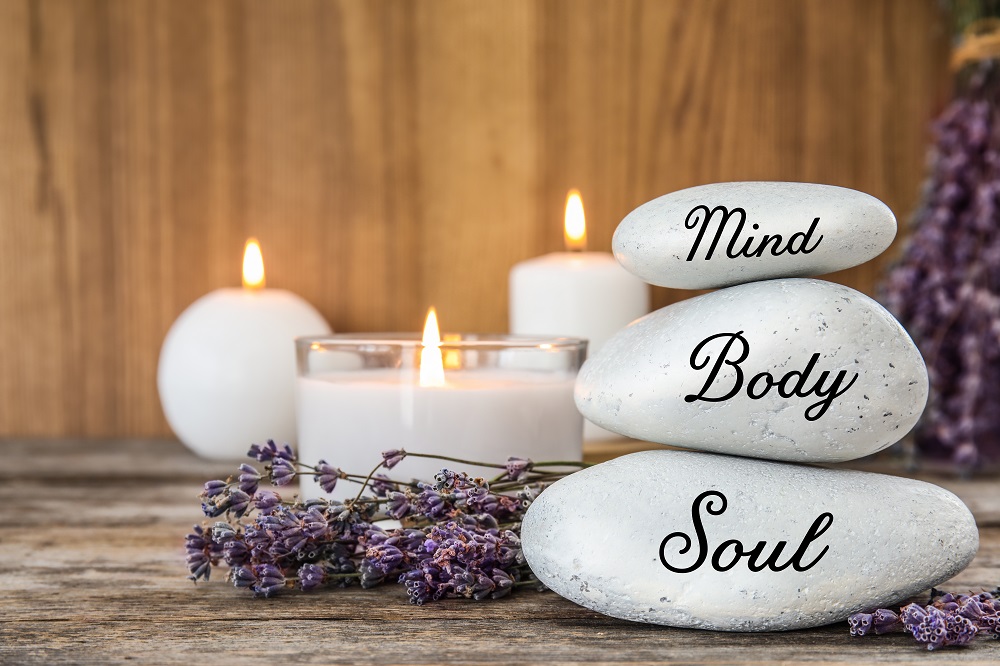
The body refers to the physical aspect of an individual, including the organs, tissues, and biological systems. It is through the body that we interact with the external world and experience sensations, emotions, and physical actions.
The mind encompasses the mental processes, consciousness, thoughts, perceptions, and emotions. It includes our cognitive abilities, such as thinking, reasoning, and memory. The mind is closely related to brain function, as the brain is the organ responsible for processing and generating mental activity.
The soul is often considered the eternal, spiritual essence or the innermost core of a person. It is commonly associated with concepts such as consciousness, individuality, and the sense of self that transcends physical existence. The soul is believed to possess qualities such as morality, emotions, and personal identity.
Connection Between Body Mind and Soul
The connection between these three aspects varies depending on different beliefs and perspectives. Some philosophical and religious traditions propose that the mind and soul are distinct from the physical body and that they continue to exist beyond death. Others emphasize a more integrated view, where the body, mind, and soul are interconnected and influence each other.
For example, in some spiritual and holistic practices, the well-being of the body is seen as essential for a healthy mind and soul. Physical health, exercise, and proper nutrition are considered important for maintaining mental and spiritual balance. Similarly, emotional and psychological states can affect the physical body, leading to stress-related illnesses or psychosomatic symptoms.
What Is the Idea of Soul According to A Yogi in Hinduism?
In Hinduism, the concept of the soul is known as the “Atman.” The Atman is considered the eternal, unchanging, and divine essence within an individual. It is believed to be the true self or innermost core that transcends the physical body and the temporary experiences of life.
According to Hindu philosophy, the Atman is eternal and indestructible. It is not born and does not die but undergoes a cycle of reincarnation, known as samsara, where it takes on different physical bodies in various lifetimes. The specific body one inhabits is believed to be determined by the law of karma, which is the cumulative result of one’s actions in past lives.
Reference from Swamy Vivekananda
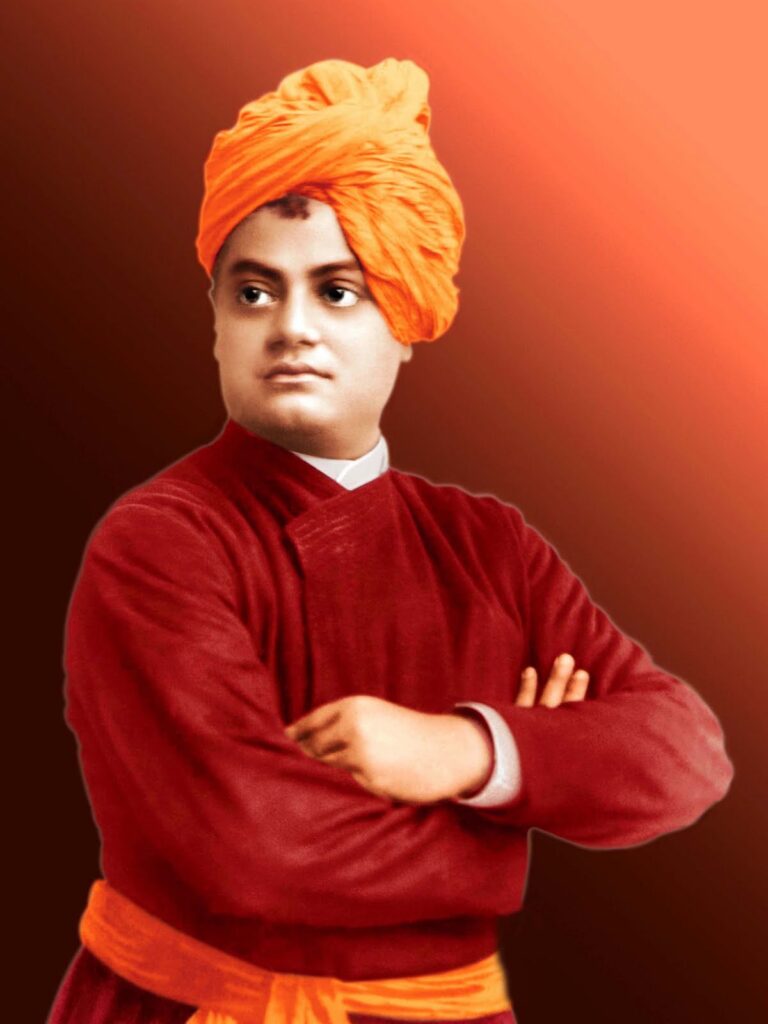
The Atman is considered to be inherently pure and divine but is often covered or veiled by ignorance (avidya) and the illusion of separateness from the ultimate reality, known as Brahman. The ultimate goal in Hinduism is to realize the true nature of the Atman and attain liberation (moksha) by breaking free from the cycle of birth and death.
What Upanishad Says on Soul
The Upanishads, which are ancient Hindu scriptures, extensively discuss the nature of the Atman and its relationship with Brahman, the ultimate reality. They emphasize the idea that the Atman and Brahman are essentially one and the same, and realizing this oneness leads to spiritual enlightenment and liberation.
Is Spirit and Soul the Same Thing in Hinduism?
In Hinduism, the terms “spirit” and “soul” are often used interchangeably or considered different aspects of the same underlying reality, depending on the specific philosophical or religious context. However, it is important to note that the precise terminology and interpretations can vary among different schools of thought and traditions within Hindu philosophy.
According to Advaita Vedanta
In some Hindu philosophical systems, such as Advaita Vedanta, the terms “spirit” and “soul” may be used synonymously to refer to the true self, the Atman. According to this perspective, the Atman is considered identical to Brahman, the ultimate reality or cosmic consciousness. In this context, the spirit/soul is seen as an individualized expression of the universal divine essence.
According to Dvaita Vedanta
On the other hand, in other schools of Hindu thought, such as Dvaita Vedanta, there may be a distinction between the terms “spirit” and “soul.” In these traditions, the spirit (jiva) refers to the individualized consciousness or individual soul, which is considered distinct from the universal divine essence. The jiva is seen as a separate entity with its own individuality, while the soul is understood as the eternal, unchanging aspect that is connected to the divine.
What Yogi Says On “What Is a Soul Made Of”?
According to Great Sages, Rishis and Munis of Hindu philosophy, the Atman is considered to be consciousness itself, pure awareness, and the innermost core of an individual. It is believed to be unchanging, indestructible, and unaffected by the processes of birth, death, and rebirth. The Atman is considered to be the essence that animates the physical body and enables sentient experience.
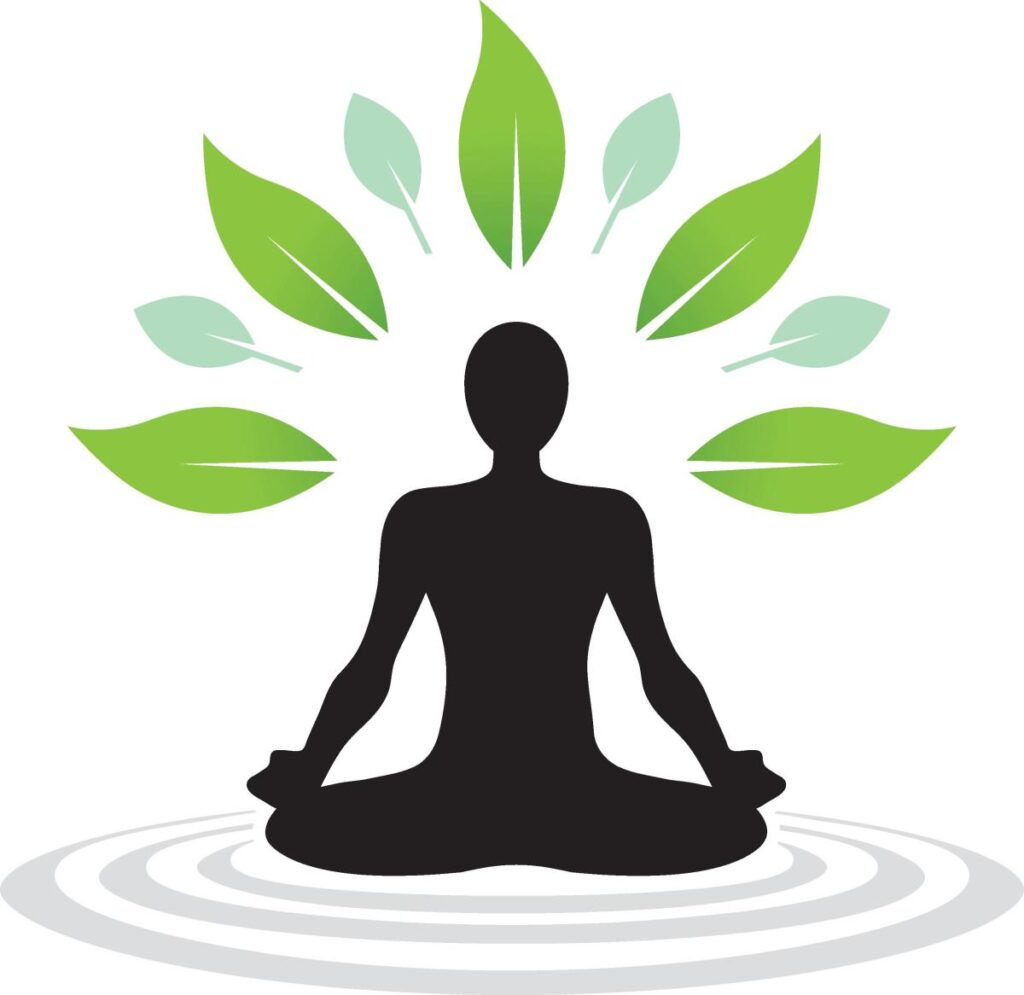
What Hindu Metaphysics Say
In Hindu metaphysics, the ultimate reality is Brahman, which is often described as the all-pervading, supreme consciousness or cosmic principle. The Atman is believed to be inseparable from Brahman, and realizing this unity is considered the goal of spiritual practice.
While the soul is not perceived as having a material composition, it is associated with qualities such as consciousness, awareness, and individuality. It is believed to possess inherent qualities such as knowledge, bliss, and immortality. The soul’s journey through samsara (the cycle of birth and death) is influenced by its accumulated actions, or karma, from previous lives.
What Great Beings of India think “Where do souls come from in Hinduism”?
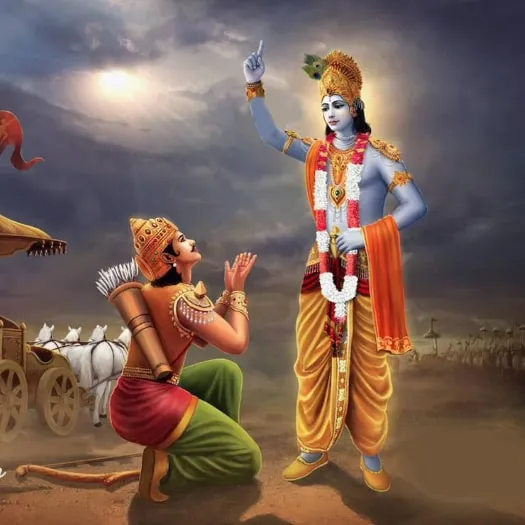
Krishna Taught Arjuna for his unwillingness to fight at the time of war that souls, do not have a beginning or end. They are considered to be eternal and have existed since time immemorial. Each of the divine beings always referred as Atman is the part of Paramatman. The exact origin of individual souls is explicitly addressed in Hindu philosophy, as the focus is more on the journey and liberation of the soul rather than its specific origin.
Karma And Its Relation with Body Mind and Soul
The process of reincarnation is influenced by the law of karma. Karma refers to the cumulative actions, thoughts, and intentions of an individual throughout their various lifetimes. The actions performed in one life shape the circumstances and experiences of subsequent lives. It is believed that the cycle of birth and death continues until the soul attains liberation (moksha) and breaks free from the cycle of samsara.
Hinduism recognizes that each soul is unique and has its own karmic history and tendencies. The specific body and life circumstances into which a soul is born in a given lifetime are believed to be determined by its past actions and karmic balance.
What Happens to the Soul After Death?
In Hinduism, the belief regarding what happens to the soul after death varies depending on different philosophical schools and religious traditions. However, there are common themes and concepts that are widely accepted.
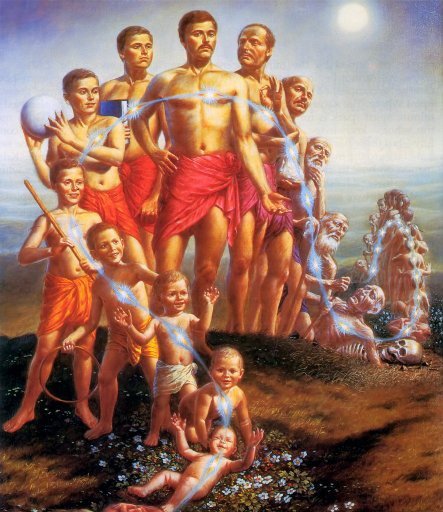
Reincarnation
One of the central beliefs in Hinduism is the concept of reincarnation. After death, it is believed that the soul, or Atman, leaves the physical body and enters into a new body in a subsequent life. The specific body and life circumstances into which the soul is reborn are believed to be determined by its accumulated karma, the consequences of its actions in previous lives. This cycle of birth, death, and rebirth is known as samsara.
Journey to the Afterlife Realms
After death, it is believed that the soul may journey through different realms before being reborn. These realms, known as loka or lokas, are often described as different planes of existence or dimensions of reality such as Bhootloka, Pretloka, Yamloka etc. The nature and number of these realms can vary depending on different beliefs and interpretations within Hinduism. It is believed that the soul’s experiences in these realms are shaped by its karma.
Karmic Consequences
The actions and deeds performed by an individual during their lifetime, known as karma, have significant implications for the soul’s journey after death. The consequences of one’s actions determine the quality of the next life and the experiences the soul will undergo. Positive actions lead to a favorable rebirth, while negative actions result in a more challenging or unfavorable rebirth.
Liberation (Moksha)
The ultimate goal for the soul in Hinduism is liberation, known as moksha. Moksha is the liberation from the cycle of birth and death and the merging of the individual soul (Atman) with the universal divine essence (Brahman). Attaining moksha signifies the end of the soul’s journey through samsara and the realization of its true nature.
Conclusion
It’s important to recognize that Hinduism is a complex and diverse religion, with various philosophical systems and interpretations. Different traditions may have different perspectives on the nature of the spirit and soul. Ultimately, the concepts of spirit and soul in Hinduism are aimed at understanding the true nature of the individual and their connection to the divine reality.
Ultimately, the nature of the connection between the body, mind, and soul is subjective and can vary based on individual beliefs, cultural background, and personal experiences. It is a topic that has been explored and debated by philosophers, theologians, and scholars for centuries, and different perspectives continue to exist.
Reference
https://www.artofliving.org/glimpse-your-soul
https://rkmath.org/spiritual-practice/
https://archive.org/details/in.ernet.dli.2015.308550
https://isha.sadhguru.org/us/en/wisdom/article/what-is-consciousness-states-myths
https://www.swami-krishnananda.org/heart/heart_15.html
